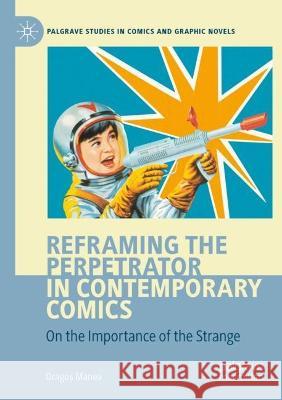Reframing the Perpetrator in Contemporary Comics » książka
topmenu
Reframing the Perpetrator in Contemporary Comics
ISBN-13: 9783031038556 / Angielski / Miękka / 2023
Reframing the Perpetrator in Contemporary Comics
ISBN-13: 9783031038556 / Angielski / Miękka / 2023
cena 492,11
(netto: 468,68 VAT: 5%)
Najniższa cena z 30 dni: 462,63
(netto: 468,68 VAT: 5%)
Najniższa cena z 30 dni: 462,63
Termin realizacji zamówienia:
ok. 16-18 dni roboczych.
ok. 16-18 dni roboczych.
Darmowa dostawa!
This book foregrounds the figure of the perpetrator in a selection of British, American, and Canadian comics and explores questions related to remembrance, justice, and historical debt. Its primary focus is on works that deliberately estrange the figure of the perpetrator—through fantasy, absurdism, formal ambiguity, or provocative rewriting—and thus allow readers to engage anew with the history of genocide, mass murder, and sexual violence. This book is particularly interested in the ethical space such an engagement calls into being: in its ability to allow us to ponder the privilege many of us now enjoy, the gross historical injustices that have secured it, and the debt we owe to people long dead.











